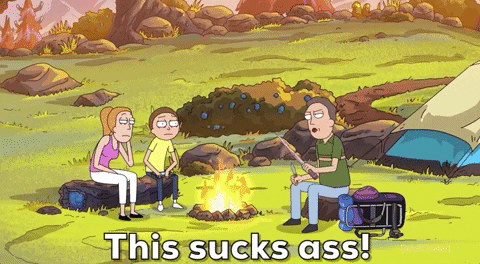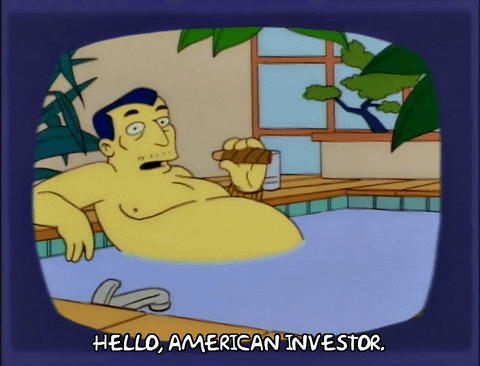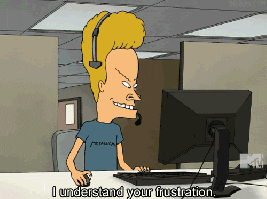Episode 92: Why it's not Always Smart to Buy the Dip, James Hardie Disgrace, the Business of Coachella, is Empathy Important, Yo-Chi Miracle, Adore Beauty Struggles and Victoria's Soviet Campsites
The guys discuss why buying the dip isn't always the best investment strategy, how the ASX blundered the James Hardie merger, economics of the world's largest music festival, and Adore's retail stores
The Contrarians catchup
Adir saw an Australian Greens poster that said ‘Free Gaza’, and asked “Do we not have have enough problems in Australia? How about we start with those and then we start worrying about other things.”
If you’ve ever listened in before, you’ll know Adir is intrigued by situations where businesses let you pay money in a socially acceptable way to skip a queue. His latest example is the paid parking area of Chadstone Shopping Centre, which he estimates 95% of people would avoid so they don’t risk the $5 fee for staying longer than two hours.
Adam discovered that Victorian campsites became free around six months ago, which Adir referred to as economics 101 because “when there is no cost for reserving something, then there is no pain for not turning up.”
Adam filled Adir in on how much he pays for toner for his laser printer, to which Adir replied “I hate this so much, Adam. Like, I cannot believe how much I hate everything that's coming out of your mouth right now.” Adam said if he was head of the ACCC, he would “force HP to change the name of the HP Smart to HP Dumb.”
The guys discuss the dominance of Mecca versus the struggles of Adore Beauty, who have a physical store in Southland and have seen a 90% drop in their share price over time.
Adir asked Adam the following questions to understand his level of acceptance of various scenarios (feel free to play along at home):
Would you pay 20% more on any airline to guarantee there are no children under the age of 13?
Do you think parents should be able to pay for a business class seat and then have a two-year-old on their lap included in the price of that seat?
Is airport parking a complete wrought?
Can you go interstate for two days without taking your laptop? (on a scale of 1-7, Adam scored this -1000).
The guys discuss the ‘7 Powers’ for Yo-Chi, the self-serve frozen yogurt chain that is dominating with gen Z could-be influencers who drive Teslas and love gummy worms.
Gambling with capital markets
A Bloomberg article titled ‘At Least the Market Isn’t Boring’ looks at the capital market model that demonstrates an innate love for gambling, whereby introducing extra volatility “makes more markets more fun and exciting and gives people what they want.”
Another way of saying this is “No risk, no ’rari” (Ferrari).
Adam: “Markets aren't really priced for a recession. They’re price for growth. We've come out of a 16-year boom since since ‘09, pumped by low interest rates and money printing over that period. So there's no reason for the market to be priced like it's priced.”
Adir: “We haven't really experienced this since the financial crisis. The real dip is probably a year and a half after the the initial dip. And it usually doesn't come, usually markets will rebound. The real dip is not FOMO, it’s despondency, where people basically say ‘we're screwed’.”
Adam: “You look at the hunger from people to drop interest rates. There’s zero reason to cut rates. People just want rates cut because they want assets inflated. The media jumped on the bandwagon because it’s self-serving. There's zero justification for a cut. If anything, we should be looking to increase rates because we're still historically low.”
James Hardie disgrace
James Hardie Industries says it will not ask to be exempted from ASX rules after its primary listing shifts to New York or try to delist itself from the local sharemarket entirely without asking for shareholder approval, as it tries to cool a growing backlash over a $14B merger plan.
Adir: “The ASX has a problem at the moment. They're losing their appeal as a market for listings, they're losing companies off the ASX to privatisations and all sorts of things. And so I would have thought the ASX would have tried to put up as many people as possible to James Hardie leaving the ASX. I just couldn't figure out the motivation for the ASX granting this waiver.”
The Business of Coachella
Studies found that of the 80,000-plus attendees at the Coachella music festival, roughly 60% used a payment plan to afford their tickets.
Attendees can choose to put down as little as $49.99 to reserve their tickets, paying the rest off over several months. An additional $41 charge is added for using the service. Ticket prices begin at $649, up from $429 in 2020.
Adir: “Why is this even news? Buy now, pay later is basically lay buy - this has been around for 100 years. I want to buy this thing, but I can't afford to pay for it all now, so the store is going to allow me to pay it off. There's nothing new about this.”
Adam: “There are two interesting stories here: more than half of the attendees used some form of buy now, pay later. The second is that even if you miss payments and don’t go, they’re willing to let you use it next year because so much money is made on non-ticket stuff like merch and food and beverage.”
Adir: “We continue living in an environment where people are buying things that they can't afford. This is just a different form of credit. But basically the entire economy is being run on debt, especially for younger people.”
How important is leader empathy?
A Bloomberg article found companies who produced better results in the columns tracking culture data were often led by women, immigrants or people who grew up poor or who held deep religious beliefs. The thing in their backgrounds that helped them connect with their employees: empathy.
Adir: “I think the word empathy is massively overused because the true definition of the word is I can put myself in the shoes of that individual who's about to be fired and experience what they are experiencing. It's not sympathy. And I think that is hugely detrimental for a leader because ultimately, unfortunately, you're just going to have to make dispassionate decisions sometimes for growing the business.”
Adam: “I think people often confuse empathy with softness. I think there's a couple of great examples. One is working from home. People think you're being more empathetic allowing people to work from home. I think it's the opposite. I think you're being soft and weak. There's a whole bunch of reasons why working from home is actually very bad for especially younger employees. So allowing it makes you seem popular might make your job easier. I think that's the opposite of empathy. I think that's soft.”
Five other stories worth following:
Meta is trying to win the AI assistant race with racy “digital companions”. Meta product managers told staff that CEO Mark Zuckerberg advocated for a “loosening of boundaries” that would let the AI assistants generate “explicit content for romantic role-play” while the company was looking for a leg up on AI assistants created by the likes of Google and OpenAI.
Vampire thriller flick, Sinners, had a second weekend almost as good as its first: It made $45M domestically, after debuting at $48M. This is rare for any movie, especially an R-rated horror film.
Shein and Temu — two Chinese online retailers known for cheap fast-fashion and home goods — posted nearly identical messages about raising prices due to new tariff and trade rules, despite being rivals.
Instagram Edits, the Meta app that lets users create videos across Instagram reels and stories, was downloaded ~703k times on iOS devices in its first two days on the market — 37x more than when competitor ByteDance released its iOS app CapCut. Edits hit a total of 7.1M views across iOS and Android.
Deliveroo, the UK’s second-largest food delivery platform, says it’s in talks with DoorDash to be acquired for $3.6B. DoorDash acquired rival Caviar in 2019, and robotics company Chowbotics and Finnish food delivery platform Wolt in 2021.








